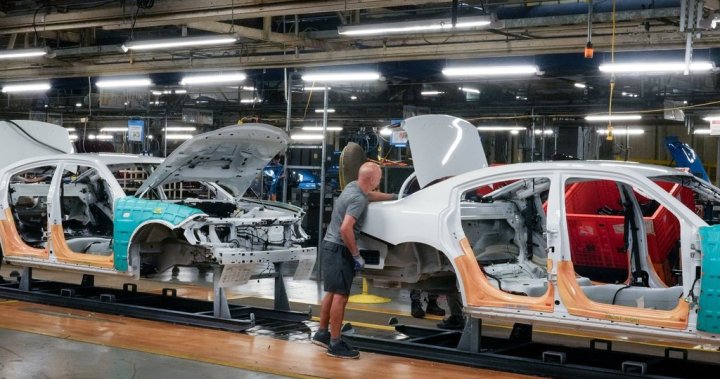Canada
Unifor has ‘grave concern’ over Stellantis work halt in Brampton, Ont.

Stellantis Pauses Production at Brampton Assembly Plant, Raising Concerns
The automotive industry in Canada is facing a new wave of uncertainty as Stellantis, one of the world’s leading automakers, announced an unexpected halt in production preparations at its Brampton Assembly Plant in Ontario. The plant, which has been undergoing significant retooling to produce both electric and gas-powered Jeep Compass vehicles, was initially set to begin production later this year. However, Stellantis revealed that it is “temporarily pausing work” on both the Jeep model and the plant’s operations as the company reassesses its product strategy amid a rapidly changing industry landscape.
Union Expresses Grave Concerns About the Pause
Unifor, Canada’s largest private sector union, has expressed deep concern over Stellantis’ decision. While the company has reassured the union that its previously announced investment plans for the Brampton plant remain intact, Unifor is skeptical about the timing of the pause and its potential implications for the future of the plant. Lana Payne, Unifor’s national president, highlighted the anxiety felt by workers, stating, “This is not an ordinary time, and because of the threats and chaos, we know our members are feeling additional worry right now. And rightfully so.”
Uncertainty in the Auto Industry
The North American auto industry is currently navigating a period of significant change and uncertainty. The threat of tariffs and the repeal of electric vehicle (EV) initiatives have created a challenging environment for automakers and their employees. These factors are not only affecting production plans but also posing risks to jobs and the broader economy. Unifor has been vocal about its concerns, emphasizing the need for clarity and stability in the sector to protect workers and ensure the industry’s long-term viability.
Impact on Workers and Production Timelines
The Brampton Assembly Plant, which has been idle since early 2024 to accommodate the retooling process, employs approximately 3,000 workers. Vito Beato, president of Unifor Local 1285, which represents the plant’s workers, has doubts about whether production will resume as originally planned in the fourth quarter of this year. While he believes production will continue in Brampton, he is pushing for clear timelines and assurances from Stellantis to alleviate the concerns of his members.
Broader Implications for the Canadian Economy
The pause in production at the Brampton plant has raised questions about the future of Canada’s automotive industry. The sector is a significant contributor to the country’s economy, and any disruptions to production or investment plans could have far-reaching consequences. Unifor is urging policymakers and industry leaders to take proactive steps to address the challenges facing the sector, including the impact of tariffs and the need for a clear strategy to support the transition to electric vehicles.
Conclusion
The temporary pause at the Brampton Assembly Plant is just one example of the broader challenges facing the automotive industry. As Stellantis reassesses its strategy, the company must work closely with unions, governments, and other stakeholders to ensure that the interests of workers and the economy are protected. The situation underscores the need for transparency, certainty, and collaboration to navigate the complexities of this dynamic and evolving industry.